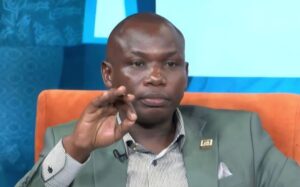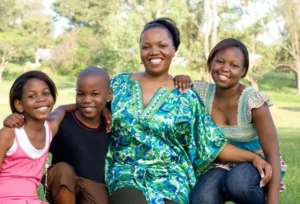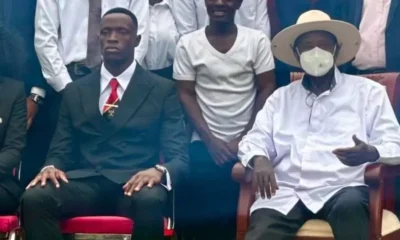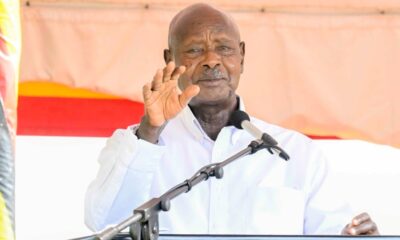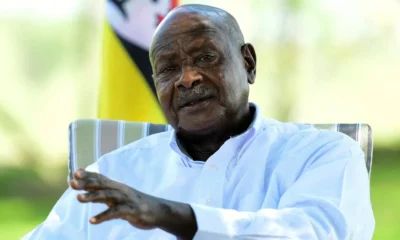News
JAGO: Elect Leaders Who Will Support Vision & Culture of Jopadhola
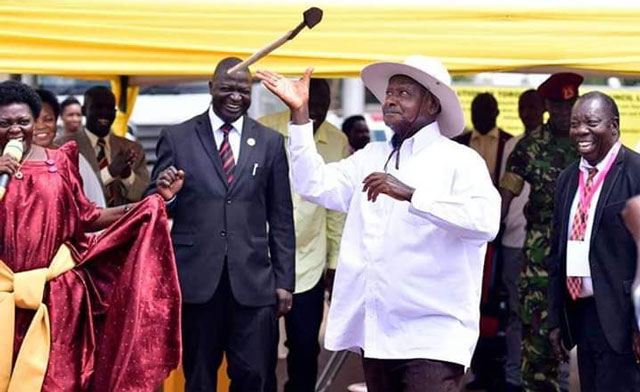
Tororo, Uganda | The Prime Minister (Jago) of the Padhola Cultural Institution (TACI) has hailed President Yoweri Museveni for the elevation of Tororo Municipality to city status and the creation of more districts but warned that the success of these plans depends on electing leaders who “are progressive and supportive of our cultural values.”
“This is an election season; let’s elect leaders who are supportive of the cultural institution pillars of unity, peace, and development,” said Jago Richard Josel Obbo in a press release.
Obbo warned that those undermining the TACI and the Jopadhola people’s ideals should be avoided and shunned altogether.
“Let’s equally avoid the tendency of violence as we campaign for our respective candidates,” he cautioned.
Congratulations, Tororo!
Jago Obbo also clarified that the new third district for Tororo, which is yet to be named, will be in Kisoko despite confusion over the matter recently.
“I congratulate the people of Tororo, Bukedi, and Ugandans in general upon the recent achievements we have registered, that is, the elevation of Tororo Municipality to city status and the creation of more districts of Mukuju and Mulanda,” he said.
Jago Obbo said Kisoko has always been the county headquarters of the greater Budama, West Budama, and now the West Budama North and Northeast Counties.
“Kisoko is endowed with vast land that can hold a district headquarters in addition to expanding other developmental activities, as the government may prioritize from time to time. I urge the people of Padhola to be united on this matter and shun those trying to confuse.”
He said that all the consultative meetings with different stakeholders in Tororo, who included the Kwar Adhola, Padhola Elders, Chairpersons LC 3, district leaders, councilors, and members of parliament, agreed and signed a joint memorandum that Kisoko would be the district headquarters.
“The confusion and last-minute change in mind came when one of the leaders who had always been invited for these meetings and never attended rose from the State House and proposed that the district headquarters would be agreed upon later. As leaders, we should avoid serving parochial interests; we cannot be seen to be double-minded and serving selfish interests against the larger masses,” Jago warned.
Schools and Rain
Jago Obbo called on parents in Padhola to endeavor to take all school-going children back to school without exception.
“In case a parent or guardian has financial or requirement challenges, please visit the schools and negotiate with the administration such that the children do not miss out on the academic activities,” he said.
On livelihoods, Obbo said the rains have remained consistent this season. “Let’s continue taking advantage of the rains and plant fast-maturing crops to support our families both at subsistence and commercial levels.”
He revealed that TACI is currently mobilizing all residents of Tororo to embrace government programs, especially immunization of children against malaria.
“I urge all people to send their children right from birth to two years of age for immunization, such that they remain healthy while growing,”.
News
Conversation With Uganda’s Student Tech Pioneer: Kusiima Saruah
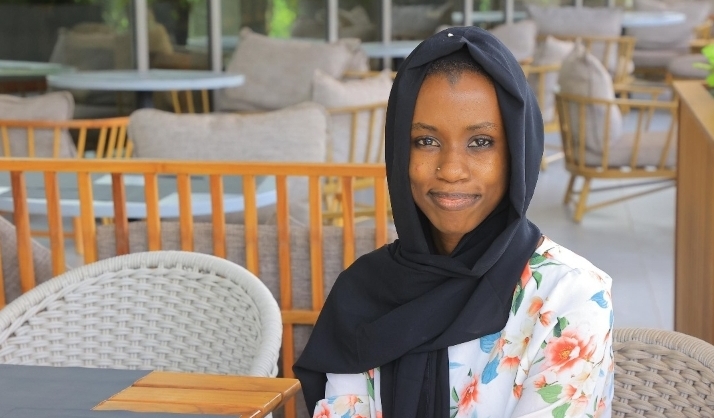
In a country where the youth make up the majority of the population, their voices are often overlooked in critical governance processes. But a bold new wave of innovation led by young minds is reshaping how civic participation and leadership are cultivated, starting right at the grassroots.
One such trailblazer is Kusiima Saruah Kyaligonza, a 21-year-old software developer and university student at Uganda Martyrs University, whose work caught our attention. In a recent conversation with Amiri Wabusimba, Kusiima shared her vision, journey, and the powerful potential of digital platforms to transform Uganda’s democratic future.
Inspired by the challenges she observed in university elections, including voter mistrust, low student participation, and systemic apathy, Kusiima developed a digital voting platform tailored for student elections. She aimed to rebuild faith in electoral processes, beginning within schools. “Watching the university’s elections, I saw the frustration from students.
I wanted to create a space where students feel their voices matter and their votes count,” she explained. “If we instill that mindset early, we raise a generation that demands integrity and leads with purpose.” Her platform addresses specific electoral issues such as vote rigging, low turnout, and favoritism common even in student leadership contests by promoting transparency, fairness, and accessibility.
Kusiima’s work is part of a broader movement of youth-led innovation in Uganda. “We often say the youth are the leaders of tomorrow,” she noted, “but many of us are already leading today through art, technology, advocacy, and innovation. What we need is support, not just applause.” Her initiative has been well received by fellow students, who report feeling empowered, heard, and more engaged in school governance. According to Kusiima, the impact goes beyond elections; it sows seeds of responsible leadership.
Asked whether digital voting could work on a national level, Kusiima responded with conviction. “Yes, it can if we commit to building digital literacy, infrastructure, and, most importantly, trust. Leaders must stop fearing technology and start embracing its potential.” If given a chance to address the Electoral Commission or national leaders, Kusiima says she would urge them to invest in youth innovations and adopt transparent systems that simplify civic participation without compromising credibility.
As Uganda continues to grapple with questions around electoral transparency, declining public trust in democratic institutions, and low youth participation, innovations like Kusiima Saruah’s digital voting platform couldn’t have come at a better time, especially as the country prepares for the 2026 general elections. Her initiative offers more than a technological upgrade, it’s a catalyst for cultural change in how Uganda engages its citizens from an early age. By digitizing trust, simplifying participation, and empowering youth to lead, this platform embodies the future of accountable governance.
This is not just a student project; it’s a national opportunity waiting to be embraced. It is time for Uganda’s government, Electoral Commission, civil society, and development partners to see this for what it is: a smart, scalable, homegrown solution that reflects both the challenges and the aspirations of a new generation.
If Uganda truly seeks to uphold the principles of free and fair elections in 2026 and beyond, then supporting innovations like Kusiima’s is not optional; it is essential.
-
Top Stories3 days ago
Just in: PLU leaning to NRM, Withdraws From Party Primaries With 22 days Remaining to Elections.
-
Top Stories6 days ago
Suspected female suicide bomber killed in Kalerwe
-
Top Stories6 days ago
NUP Clears Kyeyune Pafuladiito For Mubende District Chairperson Race.
-
Top Stories6 days ago
NUP Goes For Buwekula South MP Seat Blesses Edward Ssempira.
-
Top Stories3 days ago
Museveni Approves Flyover Along Kampala-Jinja Highway to Protect Mbalala Industrial Park Workers
-
Top Stories5 days ago
Uganda’s Open Currency Policy and the Decline of the Shilling
-
Top Stories5 days ago
Dr. Ssemugenyi petitions Constitutional Court over UPDF Amendment Act
-
Top Stories3 days ago
Police fire teargas and water cannon at protesters in Kenya as thousands take to the streets


